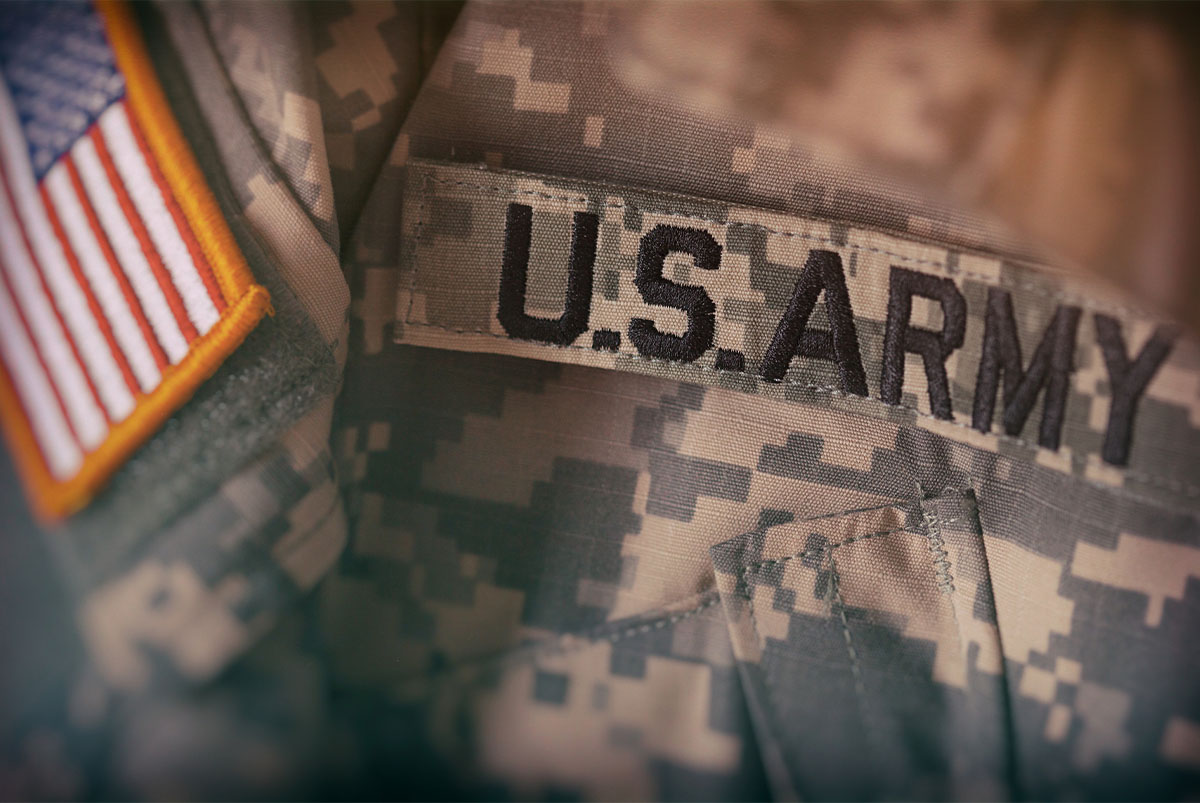Ready To Buy a Home?
Get Approved to Buy a Home
Rocket Mortgage® lets you get to house hunting sooner.
Find out what you can afford.
Research what your monthly payment might look like with our intuitive mortgage calculator.
The VA loan program is one of the best ways for qualified service members, veterans and surviving spouses to become successful home buyers. VA loans make home loans accessible and offer some of the most competitive rates around.
But there is one fee borrowers will pay with a VA loan that they wouldn’t pay with any other mortgage: the VA funding fee.
If you qualify for a VA loan, you should make it your business to know everything there is to know about the VA funding fee – including how much you can expect to pay and whether you’re exempt from paying the fee.
What Is the VA Funding Fee?
The VA funding fee is a one-time fee charged to all borrowers who take out a VA home loan. It’s calculated as a percentage of the home loan amount. The funding fee supports the VA loan program and helps keep the cost of VA loans low for borrowers. The fee can be paid upfront or rolled into the loan at closing.
How Much Is the VA Funding Fee?
The amount you pay for the VA funding fee – which is calculated as a percentage of your total loan amount – will be based primarily on whether you make a down payment and its size.
The VA funding fee can range from 1.4% to 3.6% of the loan amount depending on several factors, including:
- The VA loan type
- Whether you’re using the loan for the first time
- Your down payment
- Your service history (active-duty service members, National Guard or Reserve members)
The most you’ll pay for the funding fee is 3.6%, which could happen in the case of a cash-out refinance.
VA funding fee chart 2022: Home purchase and construction loans
Look at how your funding fee will change based on the size of your down payment for a home purchase or a construction loan.
| Down Payment | First Use | Second Use or More |
| No down payment | 2.3% | 3.6% |
| Less than 5% | 2.3% | 3.6% |
| 5% or more | 1.65% | 1.65% |
| 10% or more | 1.4% | 1.4% |
How to calculate your VA funding fee
To calculate your VA funding fee, you need to know your total loan amount and your down payment (which can be zero). Look under the appropriate column (think: first use or subsequent use). With that information, you can use our chart to help determine your VA funding fee.
Let’s say you want to buy a $300,000 home and make a $10,000 down payment. If this is your first use of your VA loan, your funding fee will be 2.3% (about $6,670) because your down payment is less than 5% of the purchase price. If this isn’t your first time using your VA loan, your funding fee will be 3.6% ($10,440).
VA funding fee chart 2022: Refinancing
Here’s a look at the VA funding fee for Interest Rate Reduction Refinancing Loans (IRRRLs) and cash-out refinancing loans, two of the most common VA refinance loans.[1]
| Refinance Loan | First Use | Second Use or More |
| IRRRL (streamline refinance) | 0.5% | 0.5% |
| Cash-out refinance | 2.3% | 3.6% |
Borrowers commonly use IRRRLs and cash-out refinance loans to refinance their mortgages. And the IRRRL is a unique benefit of the VA loan program.
- VA IRRRL: A VA IRRRL (also known as a streamline refinance loan) is a fast and affordable way to refinance an existing VA mortgage. A homeowner can reduce their mortgage interest rate in less time and with less paperwork than a traditional refinance. The loan has some limits. A big one is that you can’t get cash from refinancing.
- Cash-out refinance: If you need cash, a traditional cash-out refinance can be an option. You can take equity out of your home and lower your mortgage interest rate, using the money you pocket for almost anything – including paying off credit card debt, funding home improvements or paying college tuition.
Currently, the VA funding fee ranges from 1.4% to 3.6%, but that may change come April 2023. A temporary rate increase of 0.15% – 0.30% has been in place since the Blue Water Navy Vietnam Veterans Act of 2019 was signed into law.[2]
Do I Qualify for a VA Funding Fee Exemption?
There are a few exemptions that allow some borrowers to avoid paying the VA funding fee, including:
- You receive VA compensation for a service-connected disability: If you are a veteran with a disability connected to your service, you may be exempt from paying the VA funding fee. To qualify for the exemption, you must submit paperwork proving your disability to the VA and your lender.
- You’re eligible for VA compensation for a service-connected disability: If you’re eligible to receive compensation for a service-related disability, you may be exempt from paying the funding fee. You will need to submit a Certificate of Eligibility to your lender to verify your eligibility for disability compensation.
- You’re the surviving spouse of a veteran: If you are the surviving spouse of a veteran who died in service or from a disability connected to their service, you may be exempt from paying the VA funding fee. To qualify, you must submit a copy of your spouse’s death certificate to the lender. And you may also need to provide proof of your relationship, such as a marriage certificate.
- You’re a service member with a proposed or memorandum rating: If you receive a proposed or memorandum rating by the VA before closing on the loan, you may be exempt from paying the VA funding fee. To qualify for this exemption, you must submit paperwork to your lender that verifies your eligibility to receive compensation from a predischarge claim.
- You’re a service member with a Purple Heart: Purple Heart recipients are generally exempt from paying the VA funding fee. To qualify for the exemption, you must provide evidence, such as a letter from the VA or Department of Defense, that verifies your Purple Heart status.
Is the VA funding fee refundable?
Except for one exception to the rule, the VA funding fee is nonrefundable. If you’re awarded VA compensation for a service-related disability after you close on your home, you may be eligible for a refund.
Paying the VA Funding Fee
The VA funding fee – which is due at closing – is part of the cost of getting a VA loan. And just like closing costs on most home loans, you can roll the VA funding fee into your mortgage. While this may mean a higher monthly mortgage payment, your upfront cost to purchase the home will be lower.
One Fee You Don’t Have To Fear
The VA funding fee unlocks powerful home buying benefits for our nation’s service members. If you can take advantage of a VA loan today, that’s thanks to the millions of borrowers who came before you and paid the fee.
You may be exempt from paying the funding fee if you became disabled from an injury you sustained during your service. And if your cash reserves are low, you can make buying a home more affordable upfront by rolling your funding fee into your mortgage.
VA loans offer benefits that make them a great path to homeownership for qualified vets, service members and surviving spouses, but why limit your options? Be sure to consider other home loans. Compare benefits, fees and interest rates to find the best loan option for you.
The Short Version
- The VA funding fee is a one-time fee charged to all borrowers who take out a VA home loan. It’s calculated as a percentage of the home loan amount
- The VA funding fee can range from 1.4% to 3.6% of the loan amount depending on several factors
- There are a few exemptions that allow some borrowers to avoid paying the VA funding fee
Department of Veterans Affairs. “VA Funding Fee and Loan Closing Costs.” Retrieved October 2022 from https://www.va.gov/housing-assistance/home-loans/funding-fee-and-closing-costs/
U.S. Congress. “H.R.299.” Retrieved October 2022 from https://www.congress.gov/bill/116th-congress/house-bill/299/text




